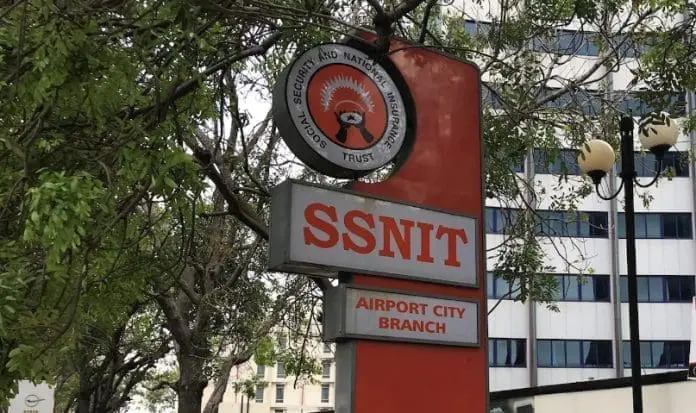Copyright ghanamma

The Social Security and National Insurance Trust (SSNIT) is partnering with banks to bring pension services closer to workers across Ghana as part of efforts to expand coverage and improve customer access, Director General Kwesi Afreh Biney has said. Speaking Wednesday at the 2025 SSNITPosium to mark the institution’s 60th anniversary, Biney said the move will make it easier for informal sector workers including traders, artisans, and drivers to register and engage with the pension scheme without visiting SSNIT branches. We have entered into arrangements with some banks to co-locate in their banking halls in what we call SSNIT inside your banking hall, Biney told stakeholders gathered at La Palm Royal Beach Hotel. This very Monday, the first of these centres opened inside Ecobank’s Tema branch. The initiative is part of SSNIT’s broader strategy to expand its physical and digital touch points nationwide. The Director General said the goal is to ensure that every district in Ghana has an opportunity to engage our staff directly at a comfortable location. The collaboration with banks will complement SSNIT’s existing digital platforms, allowing contributors and pensioners to access services seamlessly. SSNIT plans to establish services in 27 banks by the end of this year, with plans to create an additional 100 touch points inside banking halls across the country in 2026. The Trust currently operates 57 branches nationwide, but Biney acknowledged that physical expansion alone cannot guarantee service penetration due to high infrastructure costs. A key motivation behind the bank partnerships is to reach the millions of self-employed Ghanaians who remain outside the formal pension system. The Director General emphasised that this demographic, representing a large portion of the workforce, must be integrated into the national social protection framework. Every worker in Ghana deserves income security in old age, he said. To complement the physical outreach, SSNIT has consolidated its digital operations by launching a virtual branch that offers 24 hour assistance to contributors and pensioners. The platform enables users to access key services, such as checking pension certificates, through facial recognition technology from their homes. According to Biney, the Trust’s focus on digital transformation is driven by the changing nature of work and a need to adapt to new employment patterns. The world of work has changed, he said, adding that SSNIT is collaborating with the Ministry of Labour and National Pensions Regulatory Authority to ensure Ghana’s three tier pension system remains relevant. He called for reforms to the National Pensions Act, 2008 (Act 766) to reflect emerging forms of employment including gig work, digital entrepreneurship, and remote work. A more adaptive legal framework, he said, will ensure every worker, regardless of how or where they work, is protected. Biney noted that SSNIT remains financially sound and committed to its mandate. For many years, we have been a dependable pillar. Not once have we defaulted in our obligations to provide income security for the Ghanaian worker, he said. The Trust continues to invest in key sectors such as energy to sustain its fund. Biney cited successful ventures including increased investment in SENET Energy, which he described as yielding great results that help strengthen the scheme’s financial position. SSNIT’s stock market investments grew by over 1.8 billion cedis this year, he added. However, the Director General announced plans to reduce SSNIT’s investments in real estate, describing it as an area that hasn’t yielded great returns. He told the media that proceeds from property divestitures will be redirected toward higher performing sectors. We plan to take money out of real estate and put it into sectors that are giving us the best results, he said. SSNIT currently pays pensions to over 257,000 retirees. The oldest SSNIT pensioner is 115 years old while the youngest is 32 years old, who suffered a permanent disability. In 2023, over 120,000 self-employed persons were enrolled onto the SSNIT scheme. The Director General also revealed plans to establish service desks within district assemblies to bring services closer to residents in underserved areas. Our strategy was to grow using the banks as the first point of that expansion drive with a co-location strategy. We’re not just limiting ourselves to the banks. So we would get into spaces where probably even the District Assembly can become a point of contact for SSNIT, where we station our people to provide our services to the people in those communities, he explained. Rosemary Amerley Sackey, former General Manager of Benefits at SSNIT, delivered a presentation outlining the various phases that SSNIT had passed through and concluding with plans for the future. She urged participants to ponder how social security, as SSNIT, could evolve to guarantee income not only at retirement, but also stimulate productivity, intergenerational solidarity, and economic renewal. She emphasized sustainability as the guiding principle for SSNIT’s future, encompassing sustainability of trust, finances, governance, and relevance in an evolving world of work. Tracing SSNIT’s transformation from a Provident Fund in 1965 to a modern social insurance institution, she underscored its role in building livelihoods and ensuring pension security for Ghanaian workers. The SSNITPosium brought together key stakeholders, including representatives from government, labour unions, pensioners, active contributors, and investment partners. Two presentations on the Trust’s legacy of service and the future of social security in Ghana set the tone for panel discussions and an open forum. Several innovative ideas were proposed to improve SSNIT for the future, including a suggestion that pensions be calculated on gross salary rather than basic salary. Participants also discussed how SSNIT could leverage artificial intelligence and other emerging technologies to enhance service delivery in the digital age. As we celebrate 60 years of service, we must take pride in how far we have come and commit to building a future defined by innovation, inclusion, and sustainability, Biney said. The next 60 years must see an even stronger SSNIT that continues to protect the Ghanaian worker and support families. Minister of State for Public Sector Reforms Lydia Lamisi Akanvariba disclosed that her office is working closely with SSNIT to address accessibility challenges faced by contributors and pensioners, particularly in districts without banking services. She explained that the lack of banks in some districts makes it difficult for pensioners, especially the elderly, to access SSNIT benefits, as many are unable to travel long distances to areas where banks operate.



